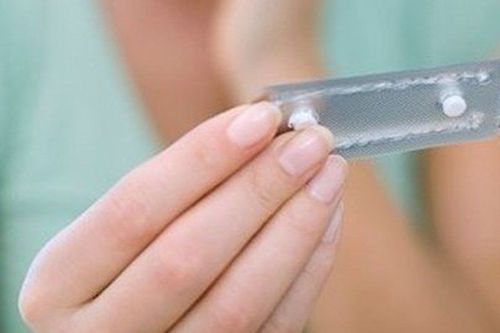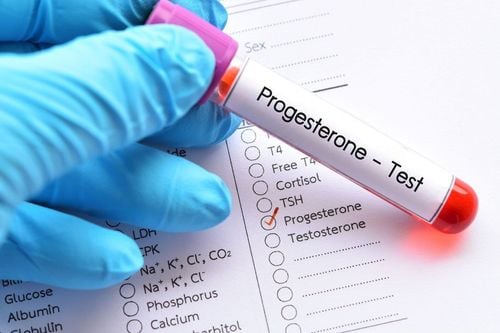Menstrual bleeding after a natural miscarriage is a fairly common phenomenon in women. Therefore, women planning to conceive need to have certain knowledge about this issue, as well as how to treat menstrual bleeding after a miscarriage or after an abortion. Recognizing when bleeding is normal and when it is excessive, the causes of menstrual bleeding after a miscarriage, and the potential dangerous complications can help better restore reproductive health.
1. Menorrhagia after miscarriage
Vaginal bleeding is a normal phenomenon after a miscarriage.
A miscarriage is defined as the cessation of fetal development occurring before the 20th week of pregnancy and before the fetus can survive outside the womb. When a miscarriage occurs at any time from a missed period to 20 weeks, the blood vessels in the uterus have proliferated and formed tissue to nourish the fetus. When a miscarriage occurs, the uterus needs to contract to expel the fetal appendages, and bleeding is inevitable.
Accordingly, in a normal miscarriage, vaginal bleeding is usually heavier than a regular menstrual period and localized within a corresponding time frame. However, some women may experience heavier than normal bleeding after a miscarriage or bleeding that lasts more than a week, known as menstrual bleeding after a natural miscarriage.
2. Causes of Menorrhagia After Miscarriage
There are several causes of menstrual bleeding after a natural miscarriage, but the most common cause is retained fetal appendages (including the placenta, umbilical cord) or incomplete miscarriage.
When the products of conception remain in the uterus, normal uterine contractions continue, causing continuous bleeding. Therefore, to stop the bleeding and resolve the condition of menstrual bleeding, it is necessary to remove the products of conception or perform a complete evacuation.
In addition to incomplete miscarriage, other less common causes of menstrual bleeding after a natural miscarriage include:
- Presence of arteriovenous fistula (where an artery connects directly to a vein in the uterus or cervix)
- Blood clotting disorders such as hemophilia and von Willebrand disease
- Blood-thinning medications (such as Heparin, although it is important to note that some herbal preparations can also cause bleeding)
- Trophoblastic cancer
- Ruptured ovarian cyst
- Shock followed by disseminated intravascular coagulation (DIC)
3. Treatment of Menorrhagia After Miscarriage
Treating menstrual bleeding after a miscarriage, in general, heavy or prolonged menstrual bleeding causing severe blood loss, or treating hemorrhage after a miscarriage can be a medical emergency. The first step is to ensure the woman’s overall condition is stable, assessing common emergency measures for any emergency situation - airway, breathing, and circulation.
A large intravenous line is usually placed, and fluids are administered intravenously. Blood typing will be done to be ready for a transfusion if needed. The next step is to quickly assess the cause so that the doctor can appropriately treat the menstrual bleeding after the miscarriage. In many cases, the patient needs surgical intervention. This means the doctor will dilate and curette the uterus to remove the products of conception. At the same time, the patient will also be given medication to support uterine contraction and limit bleeding.
Additionally, the doctor needs to rule out less common causes of menstrual bleeding after a miscarriage, such as ruptured ovarian cysts, blood clotting disorders, etc.
Thus, after a natural miscarriage, the patient may bleed a little for the next two weeks or longer, but the amount of blood will gradually decrease. The normal menstrual cycle will return in about six weeks.
4. Complications Due to Menorrhagia After Miscarriage
Hemorrhage during a miscarriage is a life-threatening complication when the patient experiences heavy bleeding. At this time, emergency medical interventions are necessary. If not treated promptly, the patient may go into shock and even die. On the other hand, severe blood loss can lead to brain anemia and complications related to oxygen deficiency if emergency treatment is delayed.
With medical care, most cases of menstrual bleeding after a natural miscarriage will improve. However, one of the treatments for severe menstrual bleeding after a natural miscarriage or unsafe abortion is a hysterectomy, which results in the woman losing her ability to conceive.
In summary, a miscarriage can be extremely painful both physically and emotionally. Additionally, menstrual bleeding after a natural miscarriage significantly affects a woman’s health. Therefore, it is crucial for the patient to give herself time to overcome the grief; at the same time, she needs to know how to treat menstrual bleeding after a miscarriage to avoid leaving sequelae that could affect future fertility.
Reference source: verywellfamily.com; webmd.com; healthline.com; medicalnewstoday.com.
To arrange an appointment, please call HOTLINE or make your reservation directly HERE. You may also download the MyVinmec app to schedule appointments faster and manage your reservations more conveniently.













